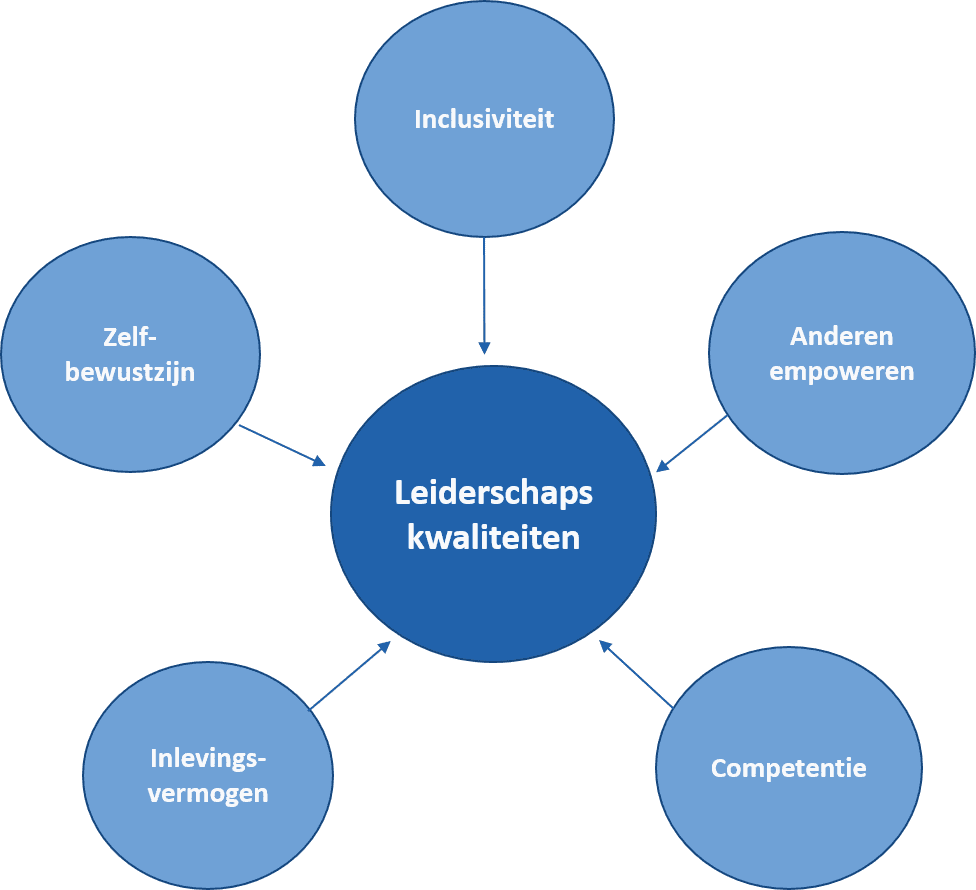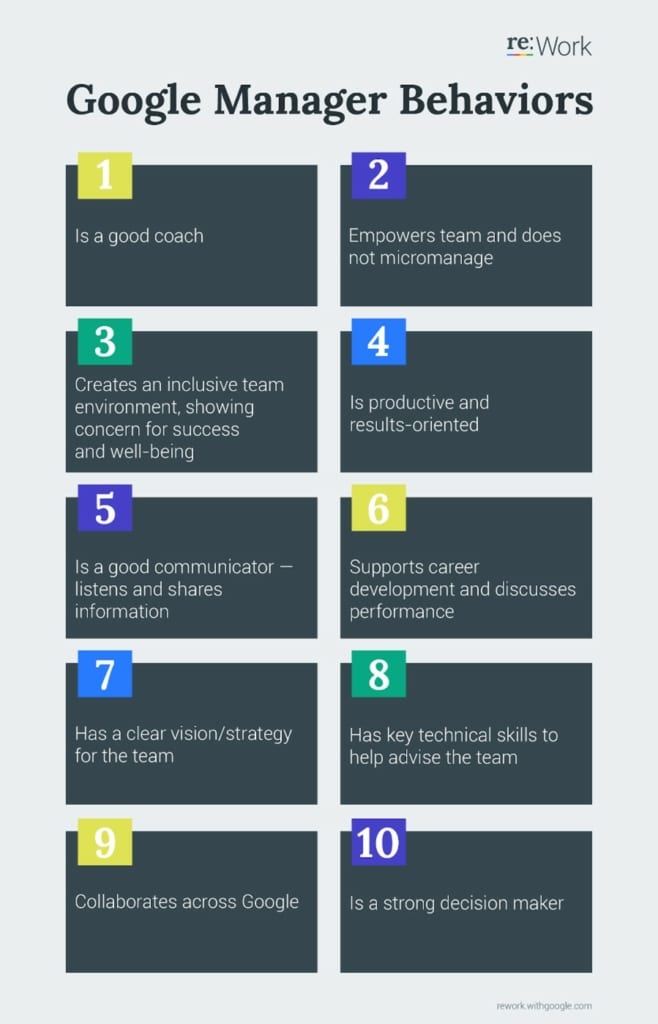Good leadership is important for organisations. Managers play an important role in this; to a great extent, they are the ones who shape corporate culture and facilitate top performance. They do so by setting clear targets and monitoring them, and by evaluating the performance of employees. Since this is an important job, it is crucial that managers regularly receive useful feedback from their employees. Research has shown that productivity can rise by up to 23% through reflection and learning (Di Stefano et al., 2016). That is why it is important to use employee feedback to reflect on experiences, both good and bad. This page further explains the concept of a manager feedback analysis.
Carry out Manager Feedback analysis
What is a Manager Feedback analysis?
A manager feedback analysis can be carried out quantitatively as well as qualitatively. Since performing a representative qualitative study would take a lot of time, most manager feedback analyses are quantitative. This means that a manager feedback analysis is really a questionnaire / survey distributed among employees, in which they can assess their manager(s) on a number of aspects. Providing a safe context is a key condition for carrying out a manager feedback analysis. Otherwise, employees might be frightened to freely provide their feedback. For this reason, manager feedback surveys are usually confidential or even anonymous.
Research shows that the following aspects contribute to effective leadership:
- Inclusivity
- Empowering others
- Competence
- Empathy
- Self-awareness

The outcomes of a manager feedback analysis show the present qualities of management as well as the qualities that could be developed further. The outcomes can be fed back at manager level as well as organisation wide, so that individual managers can act on the results and organisation-wide interventions can be developed. As the desired qualities are being developed, employee satisfaction and organisational productivity will rise.
Example of a Manager Feedback Analysis
A familiar example is the Google survey, which consists of thirteen statements (on a five-point Likert scale ranging from ‘completely agree’ to ‘completely disagree’) and two open-ended questions. Google has arrived at this particular set of questions by observing the conduct of its most successful managers. Based on their qualities, the following statements have been designed:
1. I would recommend my manager to others.
2. My manager offers me opportunities to further my career.
3. My manager communicates clear targets to/for our team.
4. My manager regularly provides me with useful feedback.
5. My manager offers me the autonomy I need to do my job (i.e. does not micro-manage by getting involved in details that should be addressed at other levels).
6. My manager consistently has attention for me as a person.
7. My manager ensures that the team remains focussed on priorities, even when this is difficult to do (e.g. by refusing to take on or de-prioritising other projects).
8. My manager regularly shares relevant information from his manager and senior management.
9. In the past six months, my manager has had at least one substantive conversation with me about my career development.
10. My manager has the technical expertise to manage me effectively.
11. My manager’s actions show that they value the perspective that I bring to the team, even if this perspective differs from their own.
12. My manager is effective in making tough decisions (e.g. decisions involving multiple teams, competing priorities).
13. My manager is effective in transcending the borders of e.g. team, organisation.
14. What would you advise your manager to keep doing? (optional, open-ended question)
15. What would you like your manager to change? (optional, open-ended question)

At Google, this survey has helped to improve the image that employees have of their managers. In addition, this survey is easy to carry out periodically, leading to a regular supply of substantive feedback. Needless to say that Google perceives manager feedback surveys as very useful and suitable.
CARRY OUT A MANAGER FEEDBACK ANALYSIS!Benefits of a Manager Feedback analysis
The greatest benefit of holding a manager feedback survey is that it raises Employee Engagement. A study by Beck and Harter from 2015 shows that 70% of the variance in Employee Engagement is attributable to managers. In addition, as mentioned earlier, productivity increases through reflection and learning. Thus, a manager feedback analysis increases both Employee Engagement and productivity. Since both of these concepts are very important in any organization, a manager feedback analysis can make a real impact.
What can AnalitiQs do for you?
AnalitiQs has ample experience in carrying out Manager Feedback analyses, and we would be happy to help your organisation improve! Curious about your options? Fill out the contact form without any obligations. Curious about other employee-related research themes? Check out all of our services below.
Interested? Contact us!

Gido van Puijenbroek
Detailed Service Overview
HR Analysis
Equal Pay
Gender mobility
Absenteeism
Employee Segmentation
Employee Retention & Attrition
Engagement
Impact Measurement / ROI
Learning & Development
Management Development
Onboarding
Organisational Network
Performance
Process Mining
Productivity
Recruitment
Restructuring / Organizational-Development
Reward
Strategic Workforce Planning
Succession Management
Employee Surveys
Culture
Employee Satisfaction
Job Satisfaction
Inclusion
Onboarding
Employee Turnover
Diversity
Employee Community / Panel
Employee Engagement
Employee Commitment
Employee Journey
Employee Net Promotor Score (eNPS)
Employee Value Proposition (EVP)
Employee Enthusiasm
Labour Market
Labour Market Panel
Labour Market Positioning
Leadership
Manager Feedback
Personal Development
Pulse
Retention
Role Clarity
Sentiment
Strategic Alignment
Team Feedback
Total Reward Optimization
Voice of the Employee (VoE)
Work from home
Work Stress
Work Pressure
Capability Building
HR Analytics Strategy
HR Analytics Product Owner
HR Analytics Outsourcing
HR Academy
HR Dashboards
Absenteeism Dashboard
Integral HR Dashboard
Leadership Dashboard
Learning Dashboard
Recruitment Dashboard
Reward Dashboard
Talent Development Dashboard
